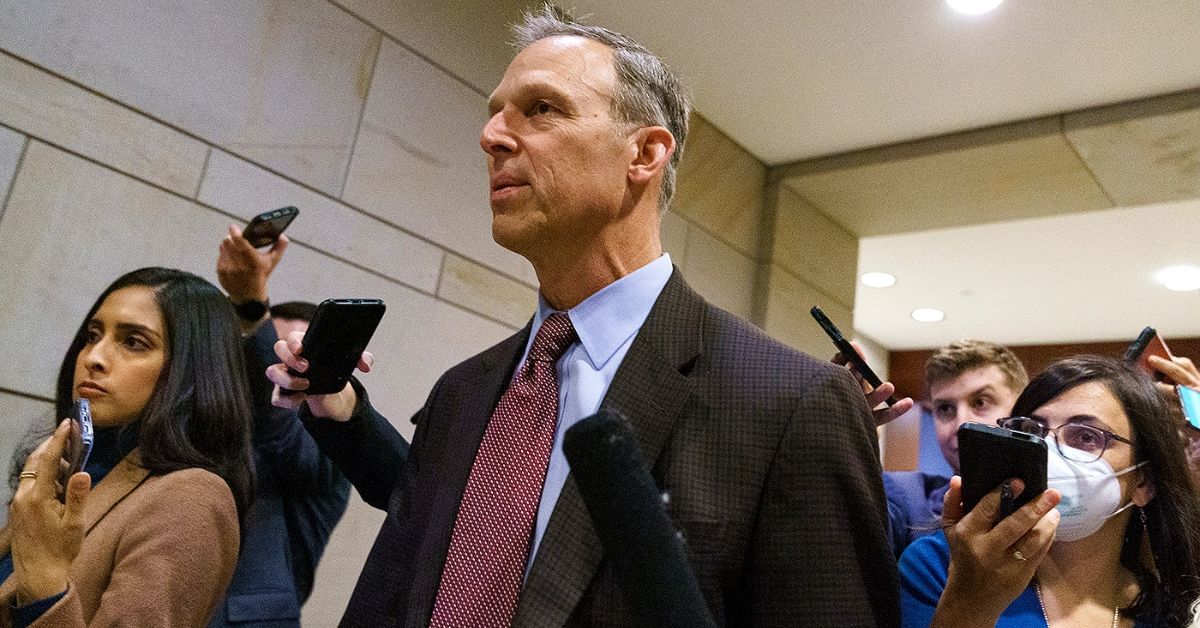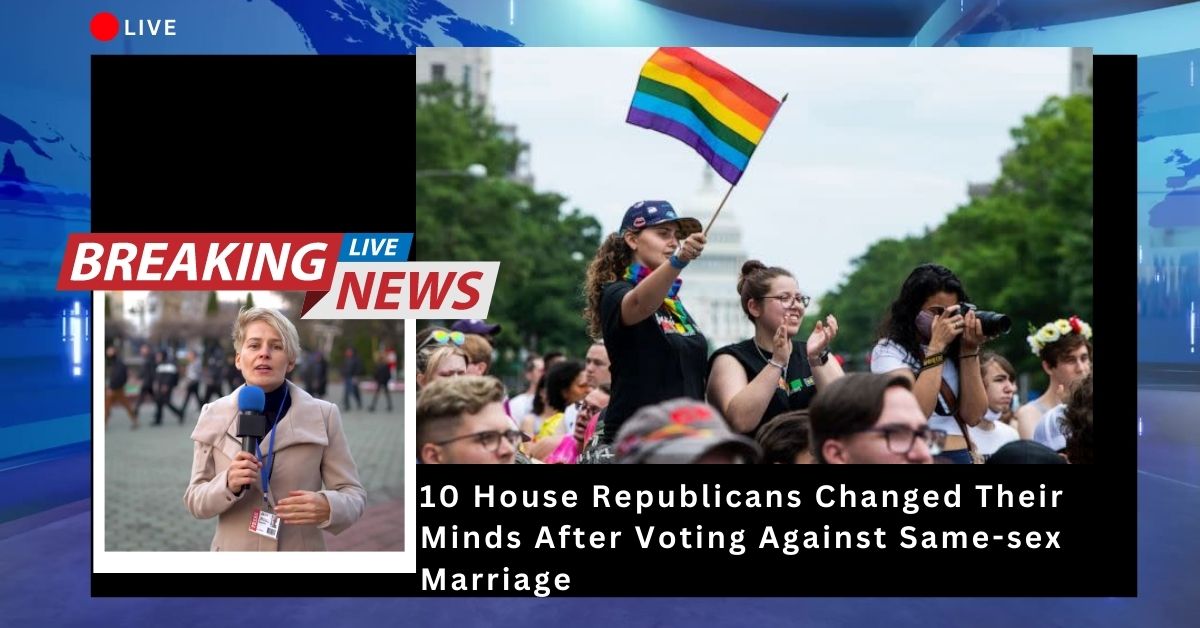10 House Republicans Changed Their Minds After Voting Against Same-s*x Marriage
The Respect for Marriage Act has been sent to President Biden by the House, where all Democrats and 39 Republicans voted for it.
The bill, which passed with a vote of 258-169-1, would officially get rid of the Defense of Marriage Act and force states to recognize marriages between people of different races or of the same gender that were done legally in other states.
The bill was first passed by the House in July. Last week, the Senate approved it after making changes to protect religious exemptions and make it clear that it does not allow polygamy. Then, the House had to agree to the bill as it had been changed, which it did on Thursday.
The bill had some support from both sides of the aisle in both houses of Congress, but some Republicans in the lower chamber voted for it in July but were against it on the second vote, and some Republicans who were against it at first changed their minds and voted for it.
Here are the 10 Republicans in the House who changed their minds about the bill to allow same-sex marriage:
“Yes” to “no”
Cliff Bentz
Rep. Cliff Bentz (Oregon) voted “yes” on the bill in July, but on Thursday he changed his vote to “no.” He hasn’t said anything in public about why he changed his vote.
Mario Diaz-Balart
Rep. Mario Diaz-Balart of Florida also changed his mind and now votes against the bill. He said in a statement on Monday that he was going to vote against the bill because it didn’t have “legitimate safeguards” for religious groups that don’t agree with the law because of their beliefs.
“The idea that all states should respect the marriage laws of other states is deeply rooted in American law and tradition,” he said. “In the same way, our founders knew that religious freedoms are holy and fragile and that they must always be fiercely protected.”
Brian Mast
Rep. Brian Mast (Fla.) also had problems with the latest version of the bill because he was worried about how religious freedom would be protected. Before the vote, he said on the House floor that the text should be changed to protect the “free exercise thereof.” This is a phrase from the First Amendment that protects freedom of religion.
Rep. Mary Gay Scanlon (D-Pa.), who said that making more changes to the bill would “upset the Senate’s carefully crafted compromise,” was also criticized by him.
Dan Meuser
Rep. Dan Meuser (R-Pa.) said in a tweet that the bill “goes beyond marriage” and hurts “fundamental to our nation” religious freedoms. That’s why he voted against it on Thursday. He said that, unlike the House’s version, the Senate’s version of the bill has language that threatens religious freedom and makes it possible for groups to be sued in civil court.
He said, “Because of this, I can’t support the Senate Amendment to the Respect for Marriage Act because it threatens the basic religious freedoms of every American.”

Scott Perry
Rep. Scott Perry (Pa.) said that he should not have voted for the bill the first time because he didn’t have enough time to read it. Axios said Perry said that the bill was rushed to the floor and that he just got there as the vote was going on.
“I knew I could either vote against traditional marriage or marriage between people of different races,” he said. He also said, “I just made the wrong choice.”
Maria Salazar
Rep. Maria Elvira Salazar (Fla.) said in a statement after the vote that she was disappointed that the final version of the bill did not include “full protections” for churches and Americans with “sincerely held religious beliefs.”
She said that Republicans in the Senate couldn’t add to the bill “vital protections” for religious Americans. She said she voted for the first version because she believes in “human dignity” and treating everyone with respect. However, she said that laws that help one group but don’t protect others should not be passed.
Jeff Van Drew
Rep. Jeff Van Drew (N.J.) voted for the bill at first, but he later said he was worried about how it would protect religious freedom. He told Axios that he “absolutely” heard from a lot of people who didn’t like the bill and that he thought their arguments were strong.
“No” to “yes”
Mike Gallagher
Rep. Mike Gallagher of Wisconsin was one of the two Republicans who voted against the bill at first but then voted for it later.
He told The Hill in a statement that he voted for the bill the second time because the Senate added an amendment about religious freedom and made it clear that the bill does not allow polygamy.
“The Respect for Marriage Act closes the polygamy loophole in Speaker Nancy Pelosi’s hastily written version and gives religious organizations, like schools, churches, and adoption agencies, strong protections for religious liberty,” he said.
Jaime Herrera Beutler
Rep. Jaime Herrera Beutler (Wash.) went from being against the bill in July to be for it on Thursday, but she hasn’t said why. Next month, at the end of her term, she will leave Congress.
“Yes” to “present”
Burgess Owens
Rep. Burgess Owens (Utah) voted for the bill at first, but on Thursday, he was the only House member to vote “present.”
“Today is without a doubt a huge step toward religious freedom, but my one “present” vote is a warning that the war is far from over,” he wrote on Twitter.
He said that people and small business owners can’t have religious freedom if the law doesn’t protect them. He also said that protecting churches and religious groups are just “the tip of the iceberg” of what the First Amendment lets people do.
Please enjoy our article if you do. If so, we’d love to hear your insights in the space provided below. Mark this page and Journalistpr.com. in your browser for further updates.

Leave a Reply